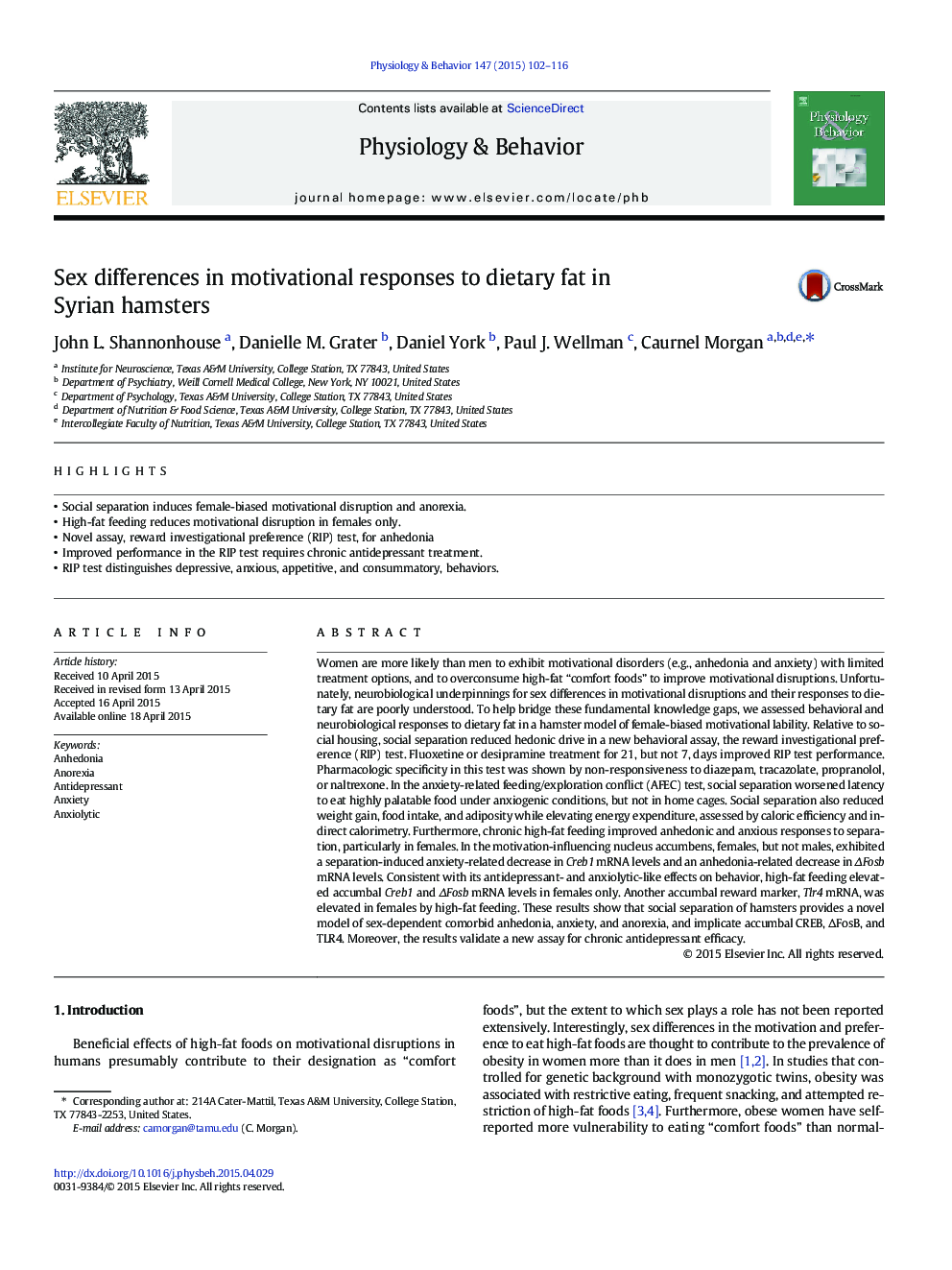| Article ID | Journal | Published Year | Pages | File Type |
|---|---|---|---|---|
| 5923441 | Physiology & Behavior | 2015 | 15 Pages |
â¢Social separation induces female-biased motivational disruption and anorexia.â¢High-fat feeding reduces motivational disruption in females only.â¢Novel assay, reward investigational preference (RIP) test, for anhedoniaâ¢Improved performance in the RIP test requires chronic antidepressant treatment.â¢RIP test distinguishes depressive, anxious, appetitive, and consummatory, behaviors.
Women are more likely than men to exhibit motivational disorders (e.g., anhedonia and anxiety) with limited treatment options, and to overconsume high-fat “comfort foods” to improve motivational disruptions. Unfortunately, neurobiological underpinnings for sex differences in motivational disruptions and their responses to dietary fat are poorly understood. To help bridge these fundamental knowledge gaps, we assessed behavioral and neurobiological responses to dietary fat in a hamster model of female-biased motivational lability. Relative to social housing, social separation reduced hedonic drive in a new behavioral assay, the reward investigational preference (RIP) test. Fluoxetine or desipramine treatment for 21, but not 7, days improved RIP test performance. Pharmacologic specificity in this test was shown by non-responsiveness to diazepam, tracazolate, propranolol, or naltrexone. In the anxiety-related feeding/exploration conflict (AFEC) test, social separation worsened latency to eat highly palatable food under anxiogenic conditions, but not in home cages. Social separation also reduced weight gain, food intake, and adiposity while elevating energy expenditure, assessed by caloric efficiency and indirect calorimetry. Furthermore, chronic high-fat feeding improved anhedonic and anxious responses to separation, particularly in females. In the motivation-influencing nucleus accumbens, females, but not males, exhibited a separation-induced anxiety-related decrease in Creb1 mRNA levels and an anhedonia-related decrease in ÎFosb mRNA levels. Consistent with its antidepressant- and anxiolytic-like effects on behavior, high-fat feeding elevated accumbal Creb1 and ÎFosb mRNA levels in females only. Another accumbal reward marker, Tlr4 mRNA, was elevated in females by high-fat feeding. These results show that social separation of hamsters provides a novel model of sex-dependent comorbid anhedonia, anxiety, and anorexia, and implicate accumbal CREB, ÎFosB, and TLR4. Moreover, the results validate a new assay for chronic antidepressant efficacy.
